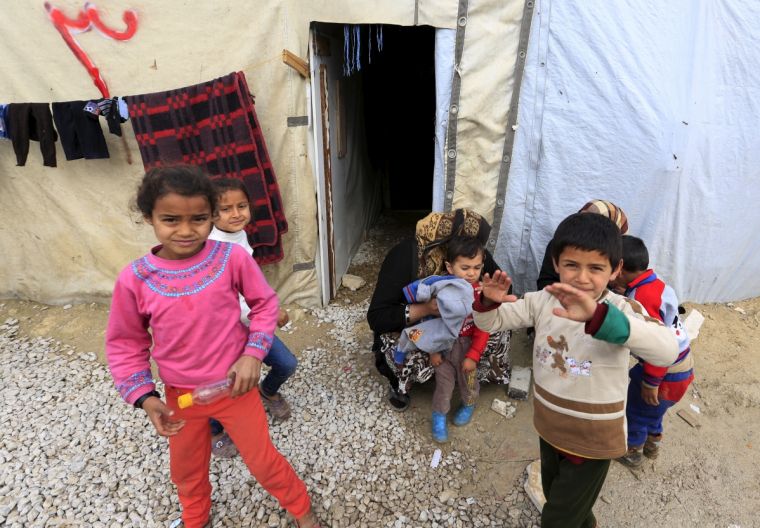Why the story of Ruth is a parable for Lebanon today
I recently spent four fascinating days in Lebanon. I was scheduled to preach in All Saints Church, Beirut, on the Sunday. But little did I realise when I was preparing the sermon how the Bible passage I had chosen would spring to life before my eyes in a most unexpected way.
I'd chosen to speak on the Old Testament story of Ruth. It's the tale of a woman from the land of Moab who makes the difficult journey from that land to Israel, to accompany her poor mother-in-law Naomi who has lost not only her husband but her two sons, Ruth's husband included.

Ruth shows remarkable dedication to Naomi. This is how she expresses it: 'Where you go I will go, and where you stay I will stay. Your people shall be my people, and your God my God.'
This is a costly things for her to do. Ruth leaves her own country to travel to Naomi's home; to a place where she would face inevitable hostility, because Israel and Moab were old enemies. In fact, out of love for Naomi, Ruth makes herself a refugee.
Lebanon, of course, lies just to the north of modern-day Israel, and ancient Moab is in Jordan, so I was in the right territory, but the parallels don't stop there. Lebanon today is no stranger to refugees; indeed a country of around 4 million people plays host to over 1 million refugees. What's more these refugees too are from an old enemy, from Syria.
For many years Syrian forces occupied Lebanon, but now with the war in Syria the tables have turned and a huge number of refugees have flooded into this tiny country.
And in this situation some amazing things are happening. We met many people, a good number of whom are part of Church Mission Society, running projects showing extraordinary love and compassion for refugees, caring for their needs and sharing the love of Christ in word and deed. You can read more about such people elsewhere in the latest edition of our newspaper The Call.
I met one couple, who themselves have fled from another country, who have turned their garage into a school for refugee children, accommodating up to 80 children a day. Many of the children were so traumatised when they arrived they wouldn't even look their teachers in the eye. But now they are singing and laughing and playing and learning and it is truly wonderful to see. Indeed I would never have believed you if you'd told me that one day I would be trampolining on a Lebanese hillside with Syrian refugee children. For me it was in a profound sense a vision of the Kingdom of God.
But to come back to Ruth, I felt that I met her face to face – indeed I felt I did so twice.
In one town I met a woman we'll call Layla, who was originally a Christian refugee from Iraq to Syria, and has now fled further to Lebanon. There she is working with others to distribute essential supplies and provide education to around 2,500 refugee families.
Layla took us to see another woman we'll call Salwa and her family, who had also fled from Syria. Salwa came to church asking for prayer for her unborn child, who was suffering from a serious condition. Miraculously the child was born healthy and whole, and Salwa committed her life to Christ. And she is now ministering in her own right, sharing the love of Jesus with her family, friends and neighbours.
And both women, following so clearly in Ruth's footsteps, are radiant with the love of Christ.
Their story, just like Ruth's, is not simply the story of good being done to refugees. It's also a story of refugees doing good to others, and furthering the Kingdom of God with love, joy and great commitment.
Let me give the last word to a pastor in Beirut who has himself a very impressive ministry among refugees, with many coming to his church simply wanting to know more about Jesus: 'All the relief work in this church is being done by the Syrian people,' he says. 'I thought I was here to bless them. I'm seeing now that they are blessing us. They are no longer "Syrian refugees" but brothers and sisters in Christ.' That too speaks profoundly of the Kingdom of God.
We in the West have so much to learn from such wonderful saints of God. Their stories, their commitment, and what God is evidently doing through them, gives me much to reflect on when in this season we follow the Archbishop of Canterbury's call to pray 'Thy Kingdom Come'.
Rev Philip Mounstephen is executive leader of Church Mission Society.











